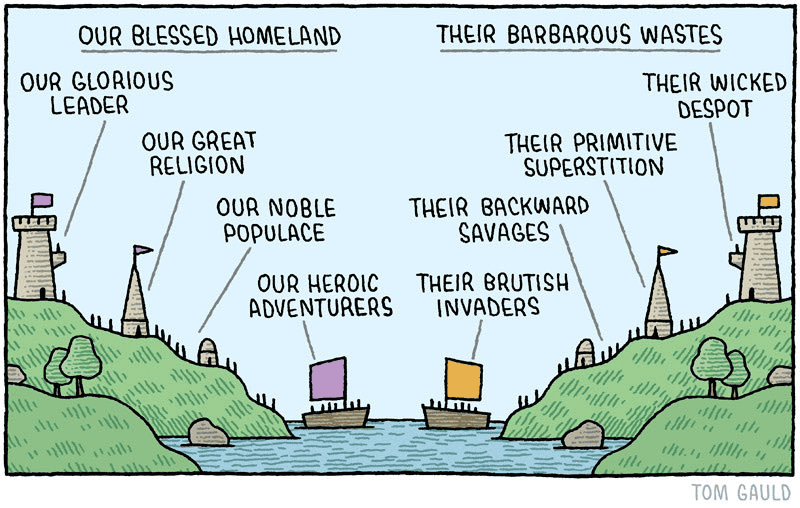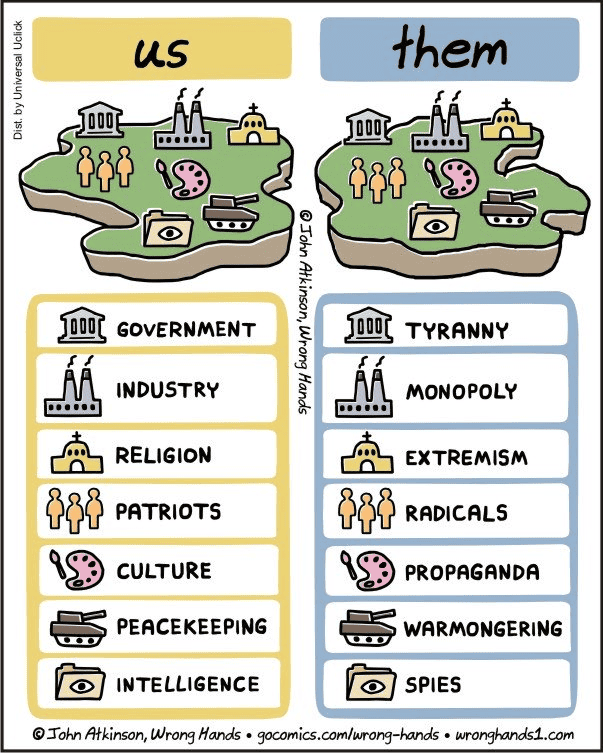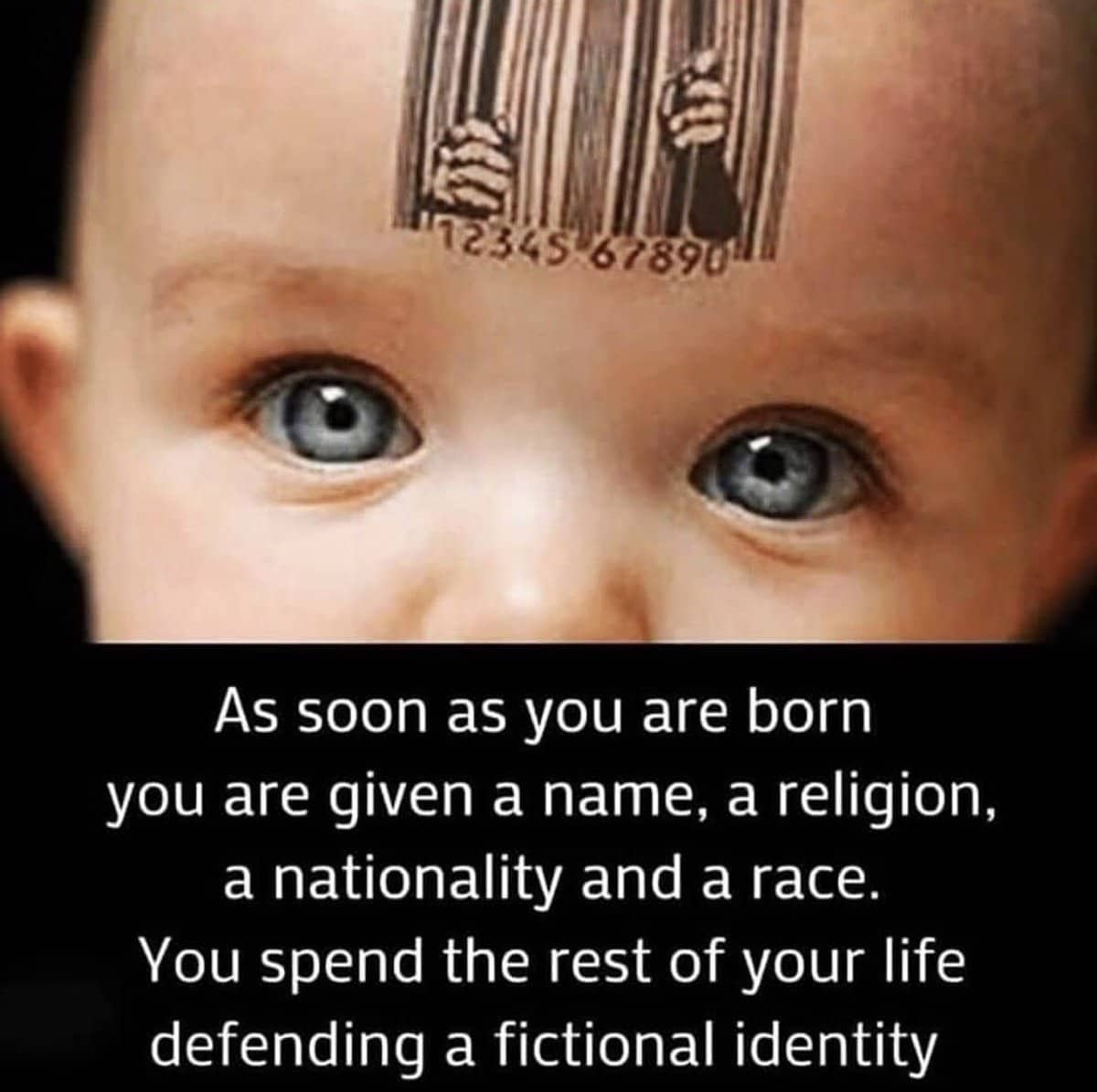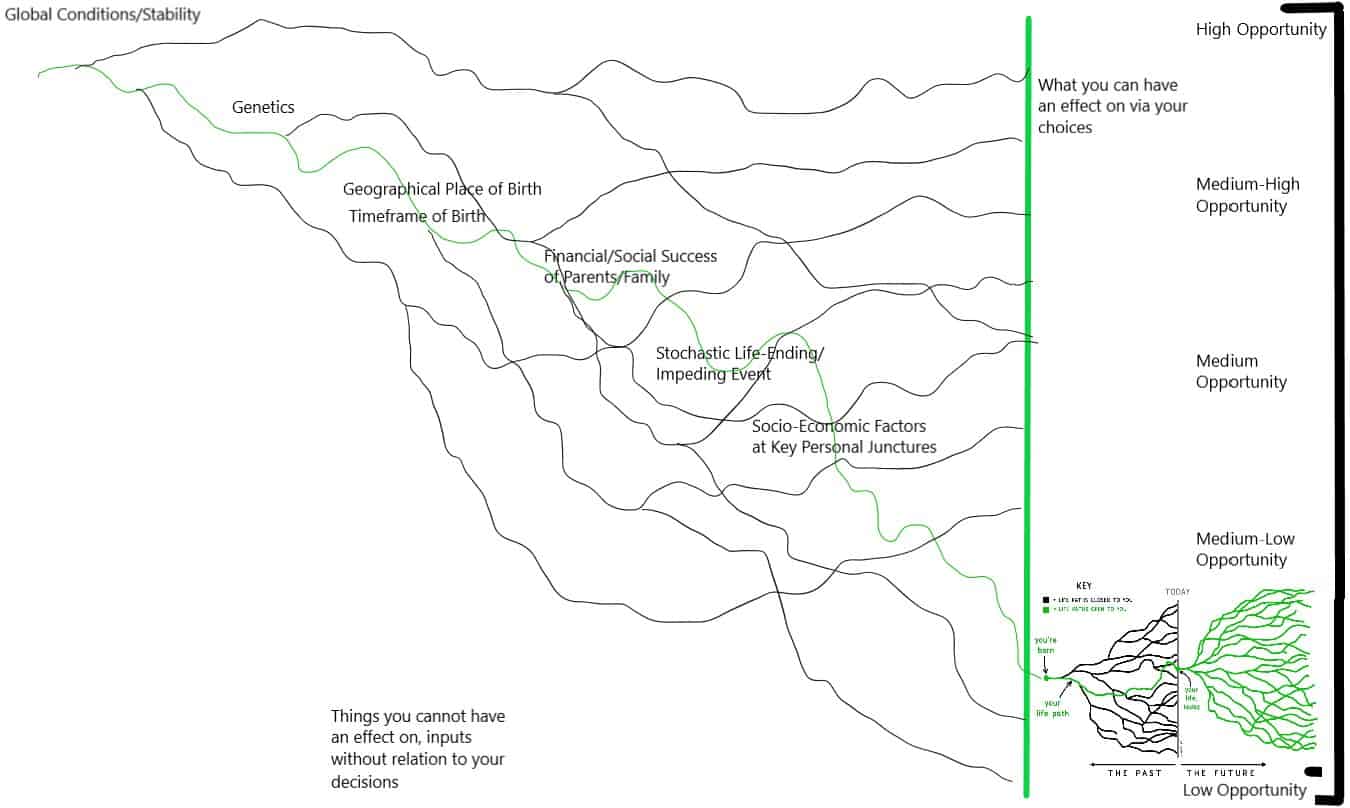Sign up to get the Sloww Sunday newsletter via email for free:👇

Sloww Sunday Newsletter 151 (Jul 30, 2023) — Inquiring Minds, Born Unequal, Nietzsche Nuggets, & More
Sloww Sunday shares my latest and greatest creations and curations to 10,000+ students of life. If you enjoy this issue, please help grow Sloww by forwarding the email version of this newsletter to other lifelong learners.
📚 Lifelong Learning
Do you have an inquiring mind?
Inquiry is the thread interconnecting everything between my existential crisis and today over the last decade. So, I finally organized all my top inquiring and questioning quotes in one place. Do you have any favorite quotes that I missed?
🆕 50+ Quotes to inspire Inquiring Minds to start Questioning Everything
“All the world is a laboratory to the inquiring mind.” — Martin Fischer
Explore more: 25+ posts on Lifelong Learning (Sloww Stage Support)
🌎 Lighter Living
Experience the lightness of transcending “us” vs “them”

Here’s a simple thought experiment:
- “Imagine two enemies on a battlefield … Suppose we could go back in time and swap them at birth so that each would be raised in the other’s culture. In time, would each not end up fighting for the other side—a different flag, different religion, different ideology? … This outcome would certainly surprise no one. It seems like common sense. But, the implications are significant. We’re readily admitting that the deepest convictions of these two individuals are, in a sense, arbitrary.” — Raoul Martinez


Bonus: Here are more comics/cartoons about transcending “us vs them” (Twitter thread)
Explore more: 100+ posts on Intentional Living (Sloww Stage 1)
🧭 Deeper Purpose
Humans are (NOT) Born Equal

You’ve probably heard the conventional wisdom that “all humans are born equal.” Unfortunately, it’s not at all true. Maybe you’ve even seen the image above that shows all the life paths “open to you” today. Again, unfortunately, this is incredibly deceiving. Luckily, someone created an updated version that more closely represents reality:

Why aren’t humans born equal? Well, here’s a little about what happens before you are even born:
- “The stuff your mother consumed, or didn’t consume, or abused, or recreated with, or whatever when you were a fetus has something to do with how your frontal cortex works … If as a fetus you were exposed to a lot of stress hormones through your mother, epigenetics is going to produce your amygdala in adulthood as a more excitable form, and you’re going to have elevated stress hormone levels … It’s incredibly hard to think about a world in which two people do a job, and this person gets more money at it because they’re smarter, and they could do it more effectively because they had enough protein when they were a fetus so that their brain developed right and because when they were 10 years old they were not beaten on a regular basis and stress hormones impaired the development of their brain.” — Robert Sapolsky
Once you are born, you have to survive infancy, which isn’t equal for everyone:
- “A baby born in Japan is 50 times more likely to reach its first birthday than a baby born in Angola. An African-American infant is twice as likely to pass away in its first year as a white American child … From 1990 to 2015, the number of children who died before their fifth birthday – mostly from preventable diseases – is roughly 236 million.” — Raoul Martinez
And then, if you survive infancy and young childhood, you have to navigate a whole host of implications from the birth lottery like trauma, addiction, obesity, socioeconomic mobility, violence, crime, punishment, etc. If the birth lottery wasn’t already clear enough, here’s a synthesis of research studies and examples: 🆕 25+ Birth Lottery Implications to Clearly See why it Matters so Much
To bring this all to life, I finally compiled all my favorite birth lottery videos in one place: 🆕 10 Birth Lottery Videos to Realize Your Luck in Life. If you only watch a few, I recommend starting with #1, #3, and #4. However, video #5 describes it like running a marathon which pairs nicely with the life path images above:
- “In a marathon, everybody starts at the same time. When the gun goes off, we all have an equal chance of running a good race and getting to the finish line … But, life isn’t like that … There are so many ways that luck creates advantages and disadvantages from the day we are born. If you aren’t born in a Western country, then you start farther back. If you’re a visible minority, you start farther back. If you’re parents are poor, you start farther back. If you have a physical disability or you develop a mental illness, you start farther back. And, in so many places in the world, if you’re a girl, you start farther back.” — Mark Sutcliffe
At this point, some people think, “Well what about those ‘rags-to-riches’ stories we hear about?” I’m glad you asked:
- “Every once in a while, the winner will come from the back of the pack…against all odds. We love those stories. They inspire us. But, in a way, they also mislead us into thinking that the race is fair when it’s not. Those are the exceptions, not the rule.” — Mark Sutcliffe
- “When poor-boy-makes-good anecdotes get passed around in the media, that is precisely because such stories are so rare.” — Joseph Stiglitz (professor at Columbia University and recipient of the Nobel Memorial Prize in Economic Sciences)
- “Some people defy every expectation, achieving remarkable things in the face of adversity. It is tempting to view such lives as evidence that we can, after all, be the masters of our own destiny, but to do so would be a mistake. Forces beyond our control determine the resources – psychological, physical and material – at our disposal to carve out a new path, and these resources, along with countless other twists of fate, ultimately determine how successful we will be in our attempt. For every unlikely success story there are countless people of equal potential who died in poverty and obscurity due to the crushing force of circumstance. Just because the odd person wins the lottery does not mean the game isn’t rigged for everyone else to lose.” — Raoul Martinez
Can we really say someone’s birth lottery ticket is their “fault” and they alone are to “blame”? Here’s an argument for why ultimate moral responsibility is a myth: 🆕 The Basic Argument against Ultimate Moral Responsibility (Galen Strawson Summary)
For Premium members who want to go deeper, this new post outlines why our attribution of agency to a single individual is also a myth: 🔒What’s our Problem with (Mis)Attribution of Agency?
Explore more: 50+ posts on Life Purpose (Sloww Stage 2)
🧠 Better Mind
Nuggets from Nietzsche
I haven’t deeply investigated Friedrich Nietzsche’s writing yet, but these excerpts seem to align with many of the realizations I’ve had:
We aren’t self-caused (Causa sui is a Latin term for something that is generated within itself, cause of itself, self-caused):
- “The causa sui is the best self-contradiction that has yet been conceived, it is a sort of logical violation and unnaturalness; but the extravagant pride of man has managed to entangle itself profoundly and frightfully with this very folly. The desire for ‘freedom of will’ in the superlative, metaphysical sense, such as still holds sway, unfortunately, in the minds of the half-educated, the desire to bear the entire and ultimate responsibility for one’s actions oneself, and to absolve God, the world, ancestors, chance, and society therefrom, involves nothing less than to be precisely this causa sui, and, with more than Munchausen daring, to pull oneself up into existence by the hair, out of the slough of nothingness.” — Nietzsche
No ‘responsibility’:
- “No one is responsible for existing at all, for being formed so and so, for being placed under those circumstances and in this environment. His own destiny cannot be disentangled from the destiny of all else in past and future … We are necessary, we are part of destiny, we belong to the whole, we exist in the whole—there is nothing which could judge, measure, compare, or condemn our being, for that would be to judge, measure, compare, and condemn the whole … But there is nothing outside of the whole! This only is the grand emancipation: that no one be made responsible any longer…” — Nietzsche
No ‘doer’:
- “Just as the common people separate lightning from its flash and take the latter to be a deed, something performed by a subject, which is called lightning, popular morality separates strength from the manifestations of strength, as though there were an indifferent substratum behind the strong person which had the freedom to manifest strength or not. But there is no such substratum; there is no ‘being’ behind the deed, its effect and what becomes of it; ‘the doer’ is invented as an afterthought—the doing is everything.” — Nietzsche
Life is just happening (life lives you vs you living life):
- “To ease the mind of the sceptic—’I do not in the least know what I am doing! I do not in the least know what I ought to do.’ You are right, but be sure of this: you are being done every moment! Mankind, at all times, mistook the active for the passive; it is their everlasting grammatical blunder.” — Nietzsche
Error of free will:
- “Today we no longer have any pity for the concept of ‘free will’: we know only too well what it really is—the foulest of all theologians’ artifices, aimed at making mankind ‘responsible’ in their sense, that is, dependent upon them … Wherever responsibilities are sought, it is usually the instinct of wanting to judge and punish which is at work.” — Nietzsche
Error of false causality:
- “In every age we have believed that we know what a cause is: but where did we get our knowledge, or more precisely, our belief that we have knowledge about this? From the realm of the famous ‘internal facts,’ none of which has up to now proved to be factual. We believed that we ourselves were causal in the act of willing; there, at least, we thought that we were catching causality in the act. Likewise, we never doubted that all the antecedents of an action, its causes, were to be sought in consciousness, and could be discovered there if we looked for them—discovered as ‘motives’: otherwise, the actor would not have been free for the action, responsible for it. Finally, who would have disputed the claim that a thought is caused? That the ‘I’ causes the thought? . . . Of these three ‘internal facts’ which seemed to vouch for causality, the first and most convincing is the ‘fact’ of will as cause; the conception of a consciousness (‘mind’ / ‘Geist’) as cause, and still later of the ‘I’ (the ‘subject’) as cause were merely born later, after causality had been firmly established by the will as given, as an empirical fact . . . In the meantime, we have thought better of this. Today we don’t believe a word of all that anymore. The ‘internal world’ is full of optical illusions and mirages: the will is one of them. The will no longer moves anything, so it no longer explains anything either—it just accompanies events, and it can even be absent. The so-called ‘motive’: another error. Just a surface phenomenon of consciousness, an accessory to the act, which conceals the antecedents of an act rather than representing them. And as for the ‘I’! That has become a fable, a fiction, a play on words: it has completely and utterly ceased to think, to feel, and to will! . . . What’s the consequence of this? There aren’t any mental causes at all! All the supposed empirical evidence for them has gone to hell!” — Nietzsche
Bonus: Here are a couple screenshots of book excerpts from from Twilight of the Idols about the error of free will and false causality.
Explore more: 75+ posts on Mental Mastery (Sloww Stage 3)
☯️ Beyond Mind
The Dream Metaphor of Mary & Jane
This one may be a doozy and too trippy for many people, but here it is for those ready for it!
🆕 The Dream Metaphor of Mary & Jane (Rupert Spira Summary)
“This is a metaphor which I feel has almost more explanatory power than any other metaphor … It’s a metaphor pointing to the similarity between the dream state (many personas, one mind) and the true perspective of Consciousness (many minds, one Consciousness).” — Rupert Spira
Explore more: 50+ posts on Spiritual Realization (Sloww Stage 4)
Share: Sloww Sunday currently sends to 10,000+ students of life each week. If you enjoyed this issue, please help grow Sloww by forwarding the email version of this newsletter to some friends and family. It’s free for them to subscribe here.
Support: Sloww is a one-human labor of love (it’s just me over here 👋). Your support keeps the site ad-free and invests in me while you invest in yourself—a true win-win! There are free and financial ways to support.
Speak: Have something you want to say, or just want to say hi? It’s always greatly appreciated. Just reply to this email or reach out socially.
Go with the Sloww,
Kyle Kowalski
Synthesizer & Solopreneur





Leave a Reply